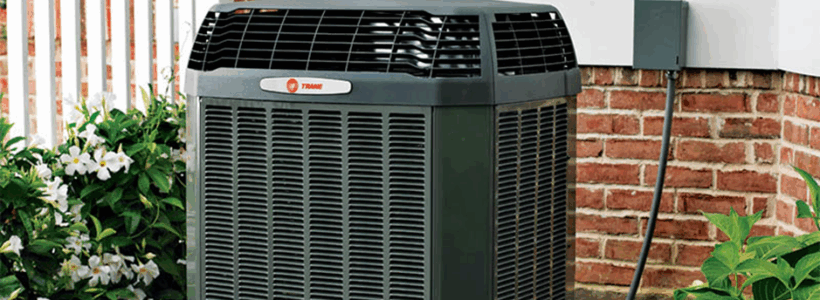Choosing the right heating and cooling system is one of the most important decisions for Georgia homeowners. With mild winters and long warm seasons, most homes require a solution that offers comfort without high energy costs. If you are wondering why choose a heat pump in Georgia, the answer lies in Georgia’s climate and the high efficiency of modern heat pump systems.
Heat pumps provide heating and cooling through one efficient unit. They help lower energy bills, improve comfort, and support a healthier indoor environment. This blog explains why a heat pump is often considered the best HVAC system for Georgia homes and how it delivers reliable performance all year.
Understanding Georgia’s Mild Climate
Georgia is known for warm summers and winters that remain moderate. Temperatures rarely drop below freezing for long periods. Because the heating demand is lower than in northern states, homeowners do not need a high-powered heating system that consumes large amounts of fuel or electricity.
A heat pump works perfectly in this environment. It performs efficiently in mild weather and does not require constant use of backup heat. This means lower operational costs and consistent indoor comfort throughout the year.
How Heat Pumps Work in Georgia Homes
A heat pump does not create heat like a furnace. It uses refrigerant to transfer heat from one place to another. This makes the system more energy efficient and reliable in Georgia’s conditions.
During winter, the system collects heat from the outdoor air and moves it inside the home. Even when the air feels cool, there is enough heat energy present for the system to extract. During summer, the heat pump operates just like an air conditioner by removing heat from the indoor air and releasing it outdoors.
This ability to work in both directions makes the heat pump a smart choice for all season comfort.
Top Reasons to Choose a Heat Pump in Georgia
1. High Energy Efficiency and Lower Utility Bills
Heat pumps are known for their superior energy efficiency. Since they move heat rather than generate it, they use significantly less energy. Georgia’s moderate winters allow heat pumps to work at maximum efficiency without strain.
Homeowners often notice a significant reduction in utility bills after switching from a gas furnace or an older air conditioning system. Heat pumps are among the most energy efficient heating options in GA and can cut annual heating and cooling expenses by a large margin.
2. One System for Heating and Cooling
A heat pump replaces both a furnace and an air conditioner. You no longer need separate systems to manage seasonal temperature needs. The same equipment heats your home in winter and cools it in summer.
This simplifies maintenance and reduces long term costs. It also ensures that your indoor comfort remains consistent year-round.
3. Eco-Friendly Heating and Cooling
Heat pumps are an excellent choice for homeowners who want an eco-friendly heating solution. Since they run on electricity and do not rely on burning fuel, they produce fewer emissions than traditional gas furnaces.
This contributes to cleaner indoor air and helps reduce your carbon footprint. When combined with renewable power sources, a heat pump becomes one of the greenest home comfort systems available today.
4. Quiet and Smooth Operation
Older HVAC systems can be loud during startup or while running. Modern heat pumps are designed to operate quietly. Their compressors and fans produce minimal sound, making them ideal for bedrooms, living rooms, and other common areas.
Because Georgia’s climate does not force the system to work under extreme conditions, a heat pump experiences less wear and tear. This results in a longer lifespan and fewer unexpected repairs.
5. Improved Indoor Air Quality
Heat pumps do not burn fuel and therefore do not produce carbon monoxide or other harmful gases. This makes the system safer and healthier for families. In addition, heat pumps continuously circulate and filter air, which helps reduce dust, allergens, and moisture.
This is especially helpful during Georgia’s humid summers, when excess humidity can make indoor spaces feel uncomfortable. A heat pump keeps humidity levels controlled and creates a more comfortable environment indoors.
6. Smart Compatibility and Zoned Comfort
Most modern heat pumps work with smart thermostats, allowing you to adjust settings from your phone or schedule temperature changes throughout the day. This enhances comfort and reduces unnecessary energy use.
Heat pumps can also be paired with zoning systems that control temperatures in different rooms. This saves energy by heating or cooling only the areas that need it. For larger homes in Georgia, zoning is especially useful and cost effective.
Heat Pumps Compared to Furnaces and Air Conditioners
While furnaces are powerful and effective in colder states, they are not always the most cost-efficient choice for Georgia. Furnaces operate by burning gas or using electric heating elements, which can lead to higher energy bills during winter.
Air conditioners work well in the summer but do not provide heat. By replacing both systems with a heat pump, homeowners reduce equipment costs and improve efficiency.
Because heat pumps handle both functions and require less energy to operate, they are often considered the best HVAC system for Georgia’s climate.
Costs and Long-Term Savings
Although the initial installation cost of a heat pump may be slightly higher than that of a traditional system, homeowners quickly regain the investment through lower utility bills. Heat pumps also require less maintenance and are less prone to breakdowns when installed correctly.
Some homeowners may qualify for rebates or incentives for installing energy efficient systems. Over time, these savings make the heat pump one of the most cost-effective comfort solutions available.
Maintenance Tips for Heat Pump Owners
To keep your heat pump operating efficiently, follow these maintenance steps:
- Clean or replace air filters every one to three months
- Keep the outdoor unit clear of leaves, dirt, or obstructions
- Schedule professional maintenance twice a year
- Check for air leaks in ducts and vents
- Ensure refrigerant levels stay within the recommended range
Routine maintenance ensures consistent performance and helps extend the life of the system.
Is a Heat Pump the Right Choice for Every Georgia Home
Most Georgia homes benefit from a heat pump because of the mild climate. In rare cases where temperatures drop very low, the system may use a backup heating element to maintain comfort. For homes in higher elevations or rural areas, a dual fuel system might be recommended. These systems use a heat pump for most heating needs and switch to gas only when temperatures become extremely cold.
For the majority of homeowners, a standard heat pump provides dependable performance and savings throughout the year.
Conclusion
Heat pumps are one of the most efficient and practical choices for Georgia homeowners. They provide heating and cooling in a single system, reduce energy costs, support cleaner indoor air, and work exceptionally well with Georgia’s mild winters and warm summers. Their combination of performance, comfort, and eco-friendly benefits makes them one of the smartest home comfort investments today.
If you want to enjoy long term comfort, lower bills, and reliable heating and cooling, contact Air Pros GA for professional heat pump installation and expert guidance. A heat pump gives you the comfort you need throughout every season in Georgia while keeping your home efficient and environmentally friendly. Contact us today.
Frequently Asked Questions
2. How long does a heat pump last?
Most heat pumps last between twelve and fifteen years. With professional maintenance, many systems last even longer.
3. Can I replace my furnace or air conditioner with a heat pump?
Yes. Most homes can easily upgrade to a heat pump system with minimal changes to existing ductwork.
4. Do heat pumps work during freezing temperatures?
Yes. Heat pumps can operate in cold weather. In rare cases of extreme cold, the system may use a small auxiliary heat source.
5. Are heat pumps loud?
No. Modern heat pumps are designed to operate quietly and are often quieter than traditional HVAC units.





